European Perch
Perca fluviatilis
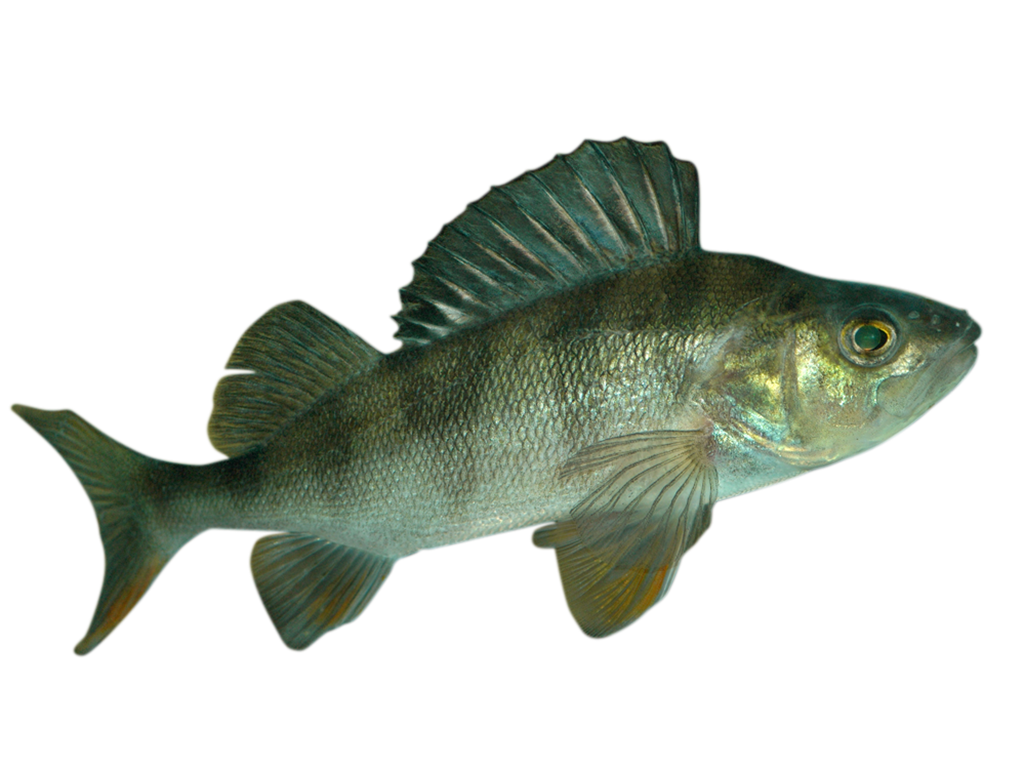
The most common freshwater fish
Do you like to go fishing? If so, you have most likely caught a perch. It is the most common freshwater fish in Sweden. It prefers deep lakes and large rivers, but can also be found in brackish water, i.e. water which is a mixture of saltwater and freshwater. Perch is a schooling fish. The females are generally larger than the males.
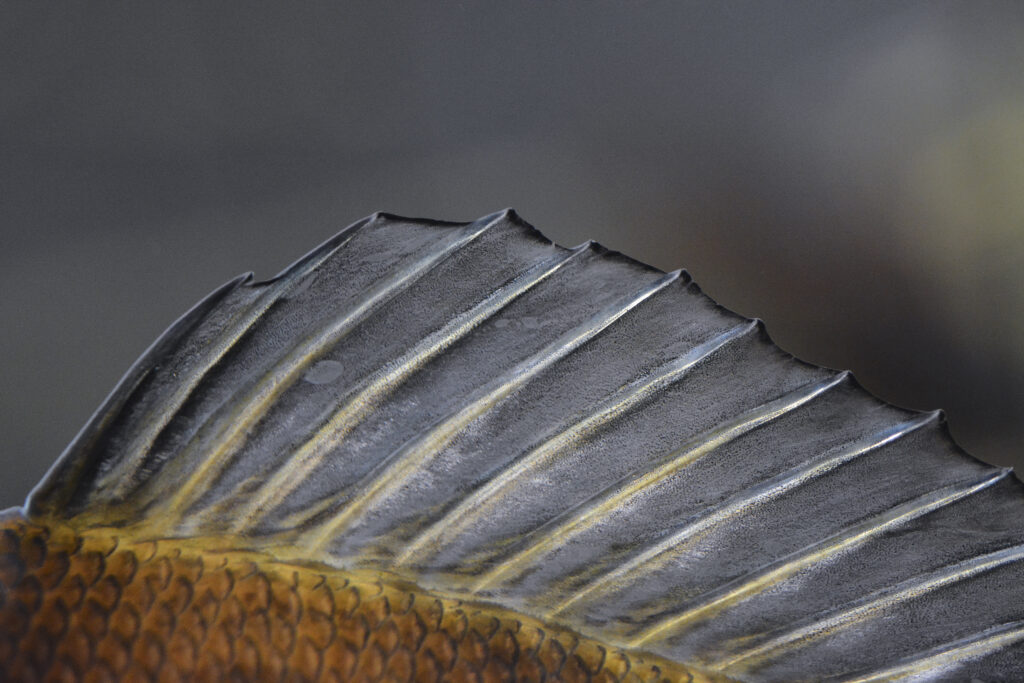
Eating each other
Perch are voracious predators. They are actually more often than not cannibals. In smaller lakes, perch fry constitute an important part of the diet of larger perch. Eating each other is part of the life cycle for perch, as the perch population in a lake can oscillate between being comprised of a large number of stunted individuals and being comprised of a smaller number of so-called giant cannibals.
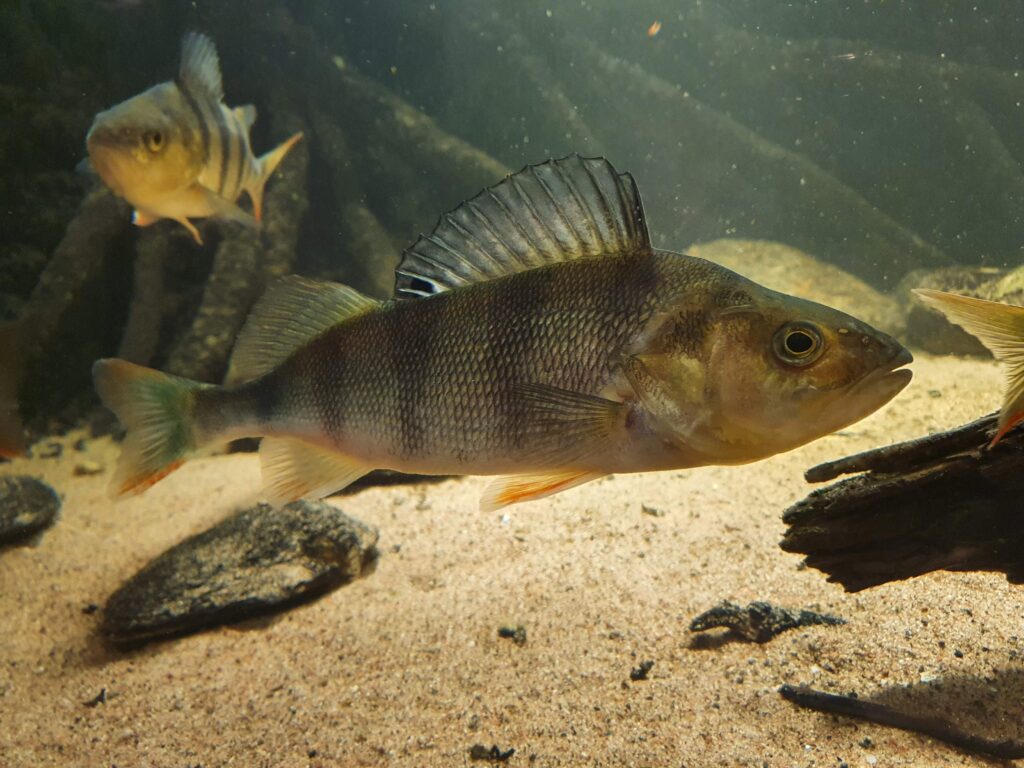
Photo: Ellika-Nordström-Malmö-Museer
Stunting and giant cannibals
Stunting occurs when a large number of perch reach maturity despite tough competition for food, including newly-hatched perch fry. Stunting means that there are a lot of mature perch, but of a stunted size. This condition eventually changes into a condition with a small number of very large perch who are excellent breeders. The new fry compete with small perch for food, leading to fewer and fewer perch reaching a large size and eventually to a new phase of stunting.
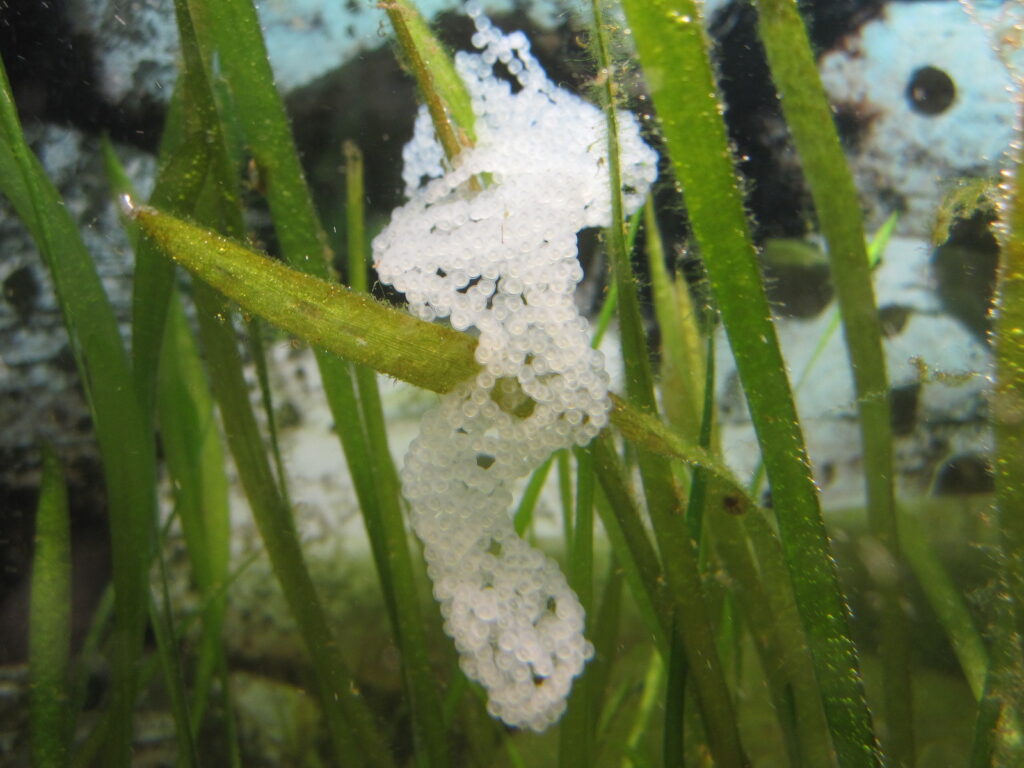
Distribution in Sweden
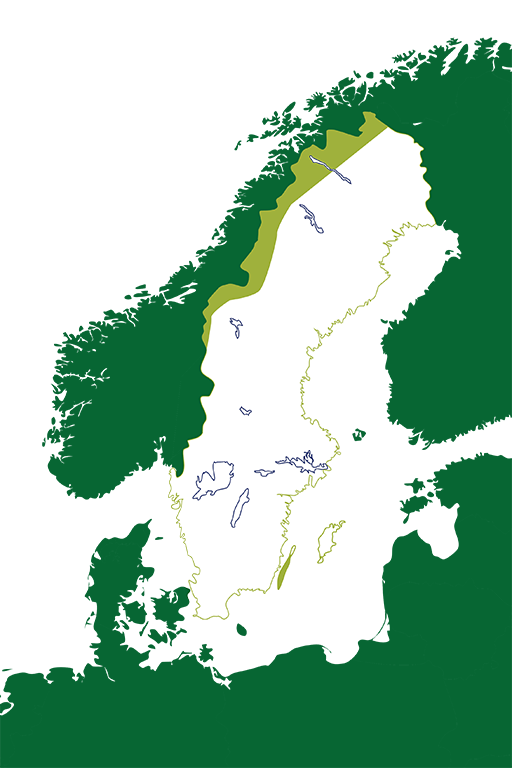
Throughout
Sweden except
northeastern
mountain regions.
White marking = Distribution
Threat based on the Red List

Trade regulations
CITES: Not listed.